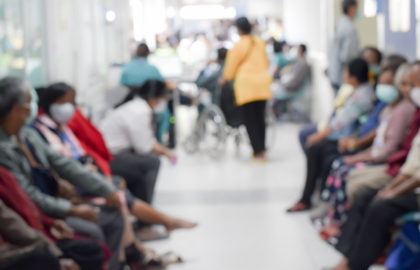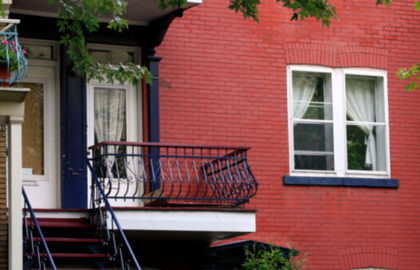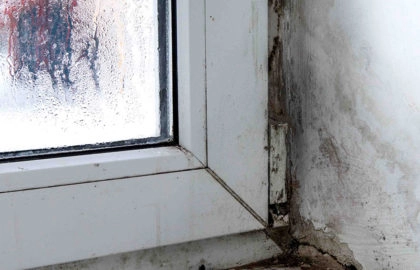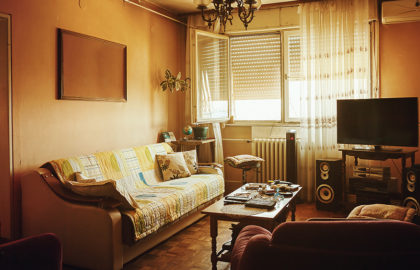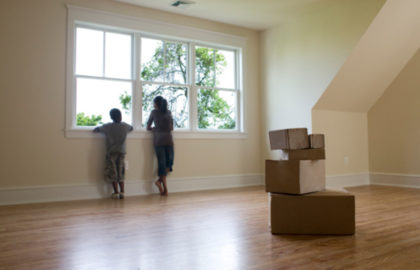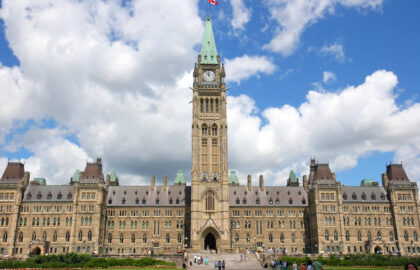As a newcomer to Quebec, you have many rights, some of which may be new and unfamiliar to you. This Web Guide brings together Éducaloi articles and videos that may be of particular interest to you. It also includes links to other Web Guides and legal topics. You can click on these links to see many more articles on each topic.
In each section, you will also find Helpful Resources, which we hope will be of assistance to you.
Newcomers Quiz
As a newcomer to Quebec, what are your rights regarding welfare, rental housing, divorce, child custody, and other legal matters? Try this quiz to test your knowledge and learn about these topics and more.
Immigration Status and Social Programs
Depending on your immigration status, you may have the right to different social services, such as health care, social assistance (welfare), child benefits and subsidized daycare.
This guide explains the main types of immigration status in Canada and the main social programs to which you may have access, depending on your immigration status.
Helpful Resources
Éducaloi does not offer information on immigration procedures.
- For information on refugee claims and humanitarian applications, consult the website of Community Legal Education Ontario.
- For assistance with immigration questions, consult the member list of the Table de concertation des organismes au service des personnes réfugiées et immigrantes (coalition of groups serving refugee and immigrants across Quebec) to find a group in your area offering the type of help you need.
- The ministère de l’Immigration, de la Francisation et de l’Intégration (Quebec immigration department) offers information on immigration procedures and on programs to help immigrants integrate in Quebec.
- Justice Pro Bono has a free information service to assist temporary foreign workers in better understanding and asserting their rights (ex. working conditions, being fired). The service is offered in English, French and Spanish at 438-337-6002 (WhatsApp) and 1-866-999-4881 (toll free).
Health Care
Quebec has a public health insurance plan that provides free health care for most people living in Quebec. It also has a public drug insurance plan. Refugee claimants are not eligible for the Quebec plans but are eligible for the federal government’s Interim Federal Health Program. (See Immigration Status and Social Services, above, for more details on who is eligible for which plan).
As the articles below explain, patients in Quebec have many rights and protections. They have the right to accept or refuse medical treatment. Doctors must inform patients of the advantages and risks of any proposed treatment, so that patients can make informed decisions. You have the right to see your medical record. If you feel that your rights as a patient have not been respected or you have not received proper services, you have the right to file a complaint.
For many other articles concerning health care in Quebec, see our articles on Health.
Helpful Resource
- (514) 281-8998 (833) or 896-8998 (toll free)
- Provides some healthcare for people who do not qualify for either Quebec public health insurance plan or for the Interim Federal Health Program (IFHP). They can also help people who qualify for the IFHP to find doctors and clinics that accept this coverage (many do not).
Housing Rights
If you are renting an apartment, you have many rights and protections as a tenant. As the articles below explain, you have the right to automatic lease renewal and to rent control. You also have the right to ask the landlord to do repairs when they become necessary. If your lease says the landlord is responsible for heating, the landlord must also provide adequate heat.
In general, you cannot leave your apartment until your lease is over, but in some situations (for example, you are the victim of spousal violence, or the apartment becomes unfit for habitation), you may be able to leave. A landlord can also ask you to leave your apartment in some situations (for example, to have a family member move in), but you have the right to contest such requests.
If you believe you were refused an apartment due to discrimination, for example, because of your race or because you have children, you have the right to file a complaint.
For many other articles concerning rental housing, please see our Web Guide Tenants and Landlords: A Guide to Rental Housing.
Helpful Resource
The Tribunal administratif du logement (formerly Régie du logement or rental Board) has articles on many aspects of rental housing, such as how to file a complaint against your landlord, as well as a free phone information service.
Family Law
Women and men have equal rights in Quebec concerning marriage, divorce, child custody and support payments. Same-sex couples can also legally marry in Quebec and have the same rights as married couples.
As the articles below explain, it is possible for one spouse to obtain a divorce, even if the other spouse disagrees. It is also possible to ask for spousal support payments when married couples separate or divorce.
Common-law spouses (people who live together as a couple but are not legally married) do not have the same legal rights as married people.
However, when it comes to children, it makes no difference whether a couple was legally married or common-law. Both spouses have equal rights regarding child custody and visiting rights. In case of disagreement, a judge must decide these issues based on the child’s best interests. Likewise, the rules for child support payments are the same for married and common-law couples.
For many other articles concerning the rights of married and common-law couples, please see our Web Guides Separation and Divorce: The Legal Impact of a Breakup and Common-Law Relationships: Everything You Need to Know.
Helpful Resource
Inform’elle offers a free family law info phone service. It also offers mediation services, assistance in preparing a divorce without a lawyer and info sessions on family law.
Rights in the Workplace
As an employee in Quebec, you have many rights. As the articles below explain, these include the right to receive a minimum wage, paid vacations, and paid overtime. You also benefit from protections against psychological harassment and sexual harassment in the workplace. You also have the right to compensation if you are injured at work.
For many other articles concerning the rights of employees in the workplace, please see our articles on Work.
Helpful Resources
- The CNESST (labour standards and workplace health and safety commission) offers many articles on workplace protections, as well as a free phone information service.
- The community group Au bas de l’échelle offers a phone information service on workplace protections.
- Santé Montréal (Montreal public health department) offers information in many languages on rights in the workplace during the COVID-19 pandemic.
- The legal clinic of the Université de Montréal offers a free legal information service to assist professionals who were educated overseas to have their qualifications recognized here in Quebec.
Rights of LGBTQ+ People
Lesbian, gay, bisexual, trans and queer people have many rights in Quebec. As the articles below explain, these include the right to privacy and protection against violence. The law also protects LGBTQ+ people from discrimination and harassment in areas such as employment and housing.
For other articles concerning the rights of LGTBQ+ people, please see our Web Guide LGBTQ+.
Helpful Resources
- The community group AGIR offers Support Groups, Drop-in Sessions, Individual Accompaniment and other services to promote integration and improve the living conditions of LGBTQ+ persons.
- Interligne is a first response centre that provides help and information to those concerned with sexual orientation and gender diversity.
Consumer Rights
People who buy goods or services in Quebec benefit from many legal protections. As the articles below explain, these include legal warranties (guarantees) for things you buy, rules about price labelling in stores, and special protections for online purchases.
For many other articles concerning consumer rights, please see our articles on Consumers.
Helpful Resource
The Office de la protection du consommateur (consumer protection bureau) has articles on many aspects of consumer rights and a free phone information service. Its website features a web guide with information specifically for immigrants.
Rights and Freedoms
The Quebec Charter of Human Rights and Freedoms and the Canadian Charter of Rights and Freedoms protect certain fundamental rights, such as the right to equality, freedom from discrimination, freedom of expression, and the right to liberty. However, there are also limits on some rights. For example, even though we enjoy freedom of expression, we can’t generally post another person’s image on the internet without their permission.
For more articles on the Canadian and Quebec legal systems, on dealing with legal conflicts as well as on legal careers, please see our articles on the Legal System.
Helpful Resources
- The Commission des droits de la personne et droits de la jeunesse (human rights and youth rights commission) provides information on rights and freedoms as well as how to file a complaint with the commission, if you believe your rights have been violated.
- The community group Center for Research-Action on Race Relations offers support to people who believe their rights have been violated and wish to take action.
Printable Publications
In addition to the many articles you can read on our website, here are a number of guides, pamphlets and infographics which you can download in printable format. You can also order paper versions from us, free of charge.















